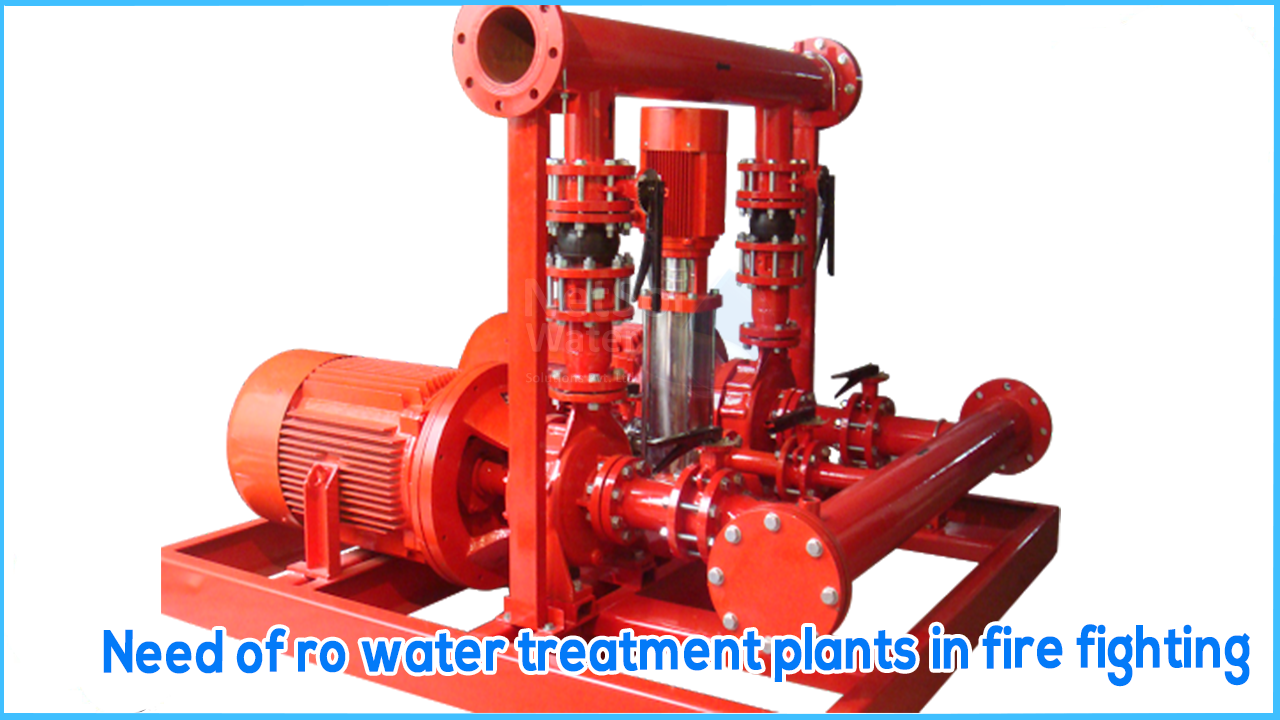For fire fighting purposes, Water Quality Standards are
Water is the most often utilised and widely available extinguishing agent, as well as the cheapest to get by all measures. In the event of an emergency, there should be adequate water to suit the needs of firefighters. You might be wondering where firemen receive their water. According to AS 2419.1 – 2005, Section 4, Water Supplies, the following sources of water are considered adequate for firefighting via hydrants, hose reels, or sprinklers in and around buildings.
- ~ Water sources that are potable
- ~ Water sources that aren't potable
1. Water sources that are potable:
The reticulated supply from the local authority is acceptable for firefighting.
2. Water sources that aren't potable:
Wastewater that has been highly treated to the proper grade and is suitable for use in firefighting is referred to as recycled Class A+ water. Recycled water treatment plants are required to prepare and use a Recycled Water Management Plan as described in the Queensland Water Recycling Guidelines to ensure the water treatment plant is designed, operated, and maintained to achieve the consistent production of Class A+ water for use in firefighting while minimising health risks to firefighters. Other types of waste water and recycled water should not be utilised for firefighting.
- ~ Swimming pools - Water from regularly used swimming pools should be considered generally suitable for firefighting, unless the pools are clearly neglected or other signs of pollution are suspected.
- ~ Rainwater tanks - Unless contamination is known or suspected, sprinklers and rising main systems should be considered generally suitable for firefighting.
Depending on the source of water supply, the treatment system can be used in fire hydrant systems. However, water from different other sources such as water drained into drainage or local waterbodies after extinguishing the fire can be recycled and reused for training purposes. Below are some of the advantages of firewater recycling which can help in making a good choice while going for a treatment process of water for fire-fighting.
Advantages of Firewater Recycling
Smart firewater management and recycling helps reduce water consumption and pollution in the environment. Contamination of recycled water, on the other hand, could endanger firefighters' health. Some “real world” examples of firewater runoff pollution, which encourage firewater recycling to save potable water and reduce environmental pollution is an example of a local stream polluted by firewater runoff or an example for industrial estates contaminated by foam-based and water-based firewater runoff. These examples illustrate the need for runoff recycling. Freshwater use (especially potable water) is expensive for society, which pays for it indirectly through taxes on the water used by fire departments to fight fires. Because the modelling and standardisation of the effective duration of a fire and the accompanying consumption of water required to extinguish the fire rely on various variables, determining the amount of firewater to be discharged into any drainage system or holding basin is difficult. The amount of actual consumed firewater is determined by estimating the length of a fire scenario.
The findings can be used to calculate the size of a waste firewater drainage system and the capacity of wastewater basins that hold firewater. In terms of water flow rates, the performance requirements for a firewater recycling system are difficult to predict and depend on factors such as how many water supply sources are used and for how long. Because runoff is typically trapped in holding basins for later treatment, the pace at which firewater may need to be treated is not always a function of its runoff rate (i.e., days or weeks after the fire has been extinguished). As a result, the firewater treatment system selected is unaffected by the actual flow rates experienced during an incident.



